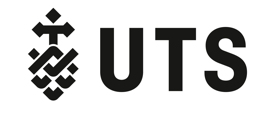 Dr. Stefan Mozar (conference chair) giving a thank you award to Professor Chin-Moi Chow |
 Professor Chin-Moi Chow (keynote speaker) with Carolyn McGregor (keynote and tutorial speaker and conference co-chair) |
| More conference pictures | |
All papers for the Life Sciences Conference must contain a statement about your ethics approval (or exemption), or why it is not applicable. If your paper does not contain a statement, please include it in the final upload of your paper.
LSC 2017 will include tutorials and a scientific program composed of plenary talks, invited sessions, and poster presentations of peer-reviewed papers. In addition, there will be a host of special events, including a Standards Track, an IEEE Women in Engineering event, a High School Competition, an e-textile style fashion show, and an IBM Big Data/Watson event in partnership with the IEEE Big Data Initiative. All are encouraged to submit papers containing original contributions to be considered for presentation at LSC 2017. Accepted 4-page regular papers will be published in the conference proceedings and included in IEEE Xplore. To communicate late scientific findings and to encourage attendance by a broader audience, LSC 2017 will provide additional presentation opportunities via a second track featuring posters. Topics include, but are not limited to:
- Smart devices and technologies
- Smart garments/textiles
- Wearable sensors
- Biosensor technologies
- Imaging technologies and processing
- Data preprocessing, cleansing, management, mining, and integration
- Biosignal processing
- Design methodologies and app development
- Biosensor-based mobile health apps
- Virtual reality (VR) in healthcare and medicine
- Brain-computer interfaces
- Point of Care devices and technologies
- Security and privacy
- Synthetic biology
- Medical control systems
- Big Data for healthcare
- Deep learning and pattern recognition
- Bioinformatics
- Rehabilitation and assistive technologies
- Biometrics
- IoT for healthcare
- Electronic medical records
- Energy harvesting/scavenging technology
- Wireless communication and networking Social implications of technology
Sponsors

